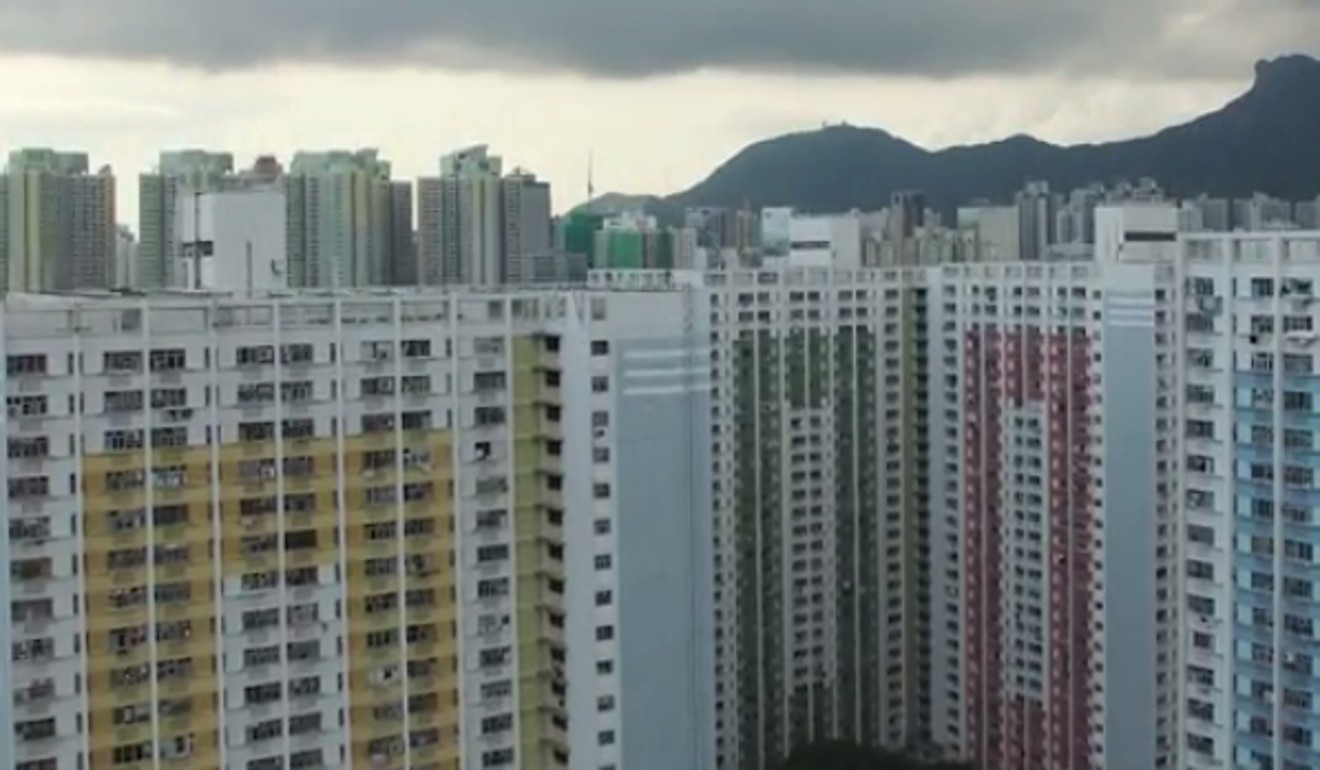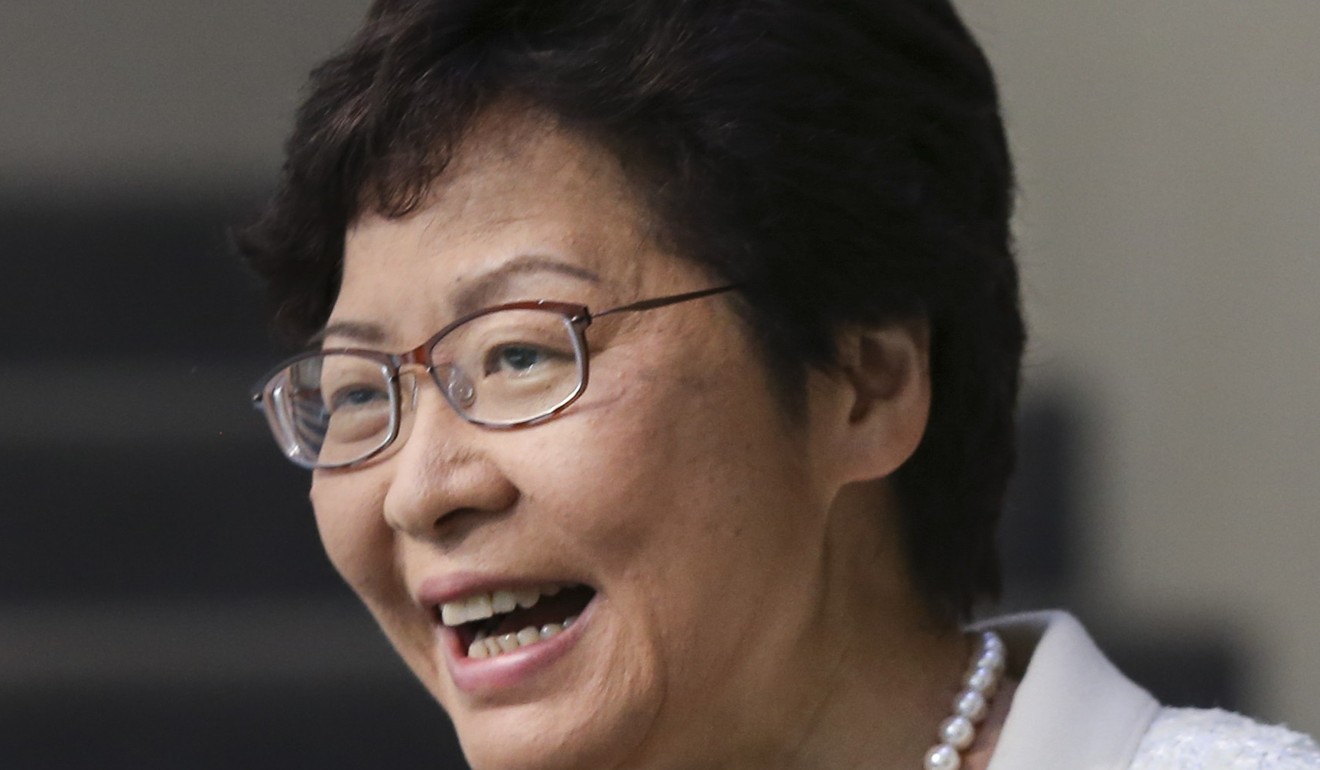
Hong Kong Chief Executive Carrie Lam warned she must act quickly to rein in soaring property prices
Analysts say there are no immediate solutions, and that people must give time for new administration’s measures to take effect
Property analysts have called on Chief Executive Carrie Lam to treat Hong Kong’s runaway property prices as the new administration’s top priority, adding that realistic steps must be taken to release supply of land.
Record property prices have driven out multinationals from the city, and forced them to move their headquarters to cities such as Shanghai and Singapore. Mercer’s annual Cost of Living survey for expatriates showed Hong Kong to be the second costliest city in the world, with property prices the main contributor.
Ilya Bonic, senior partner and president of Mercer’s career business, says that Hong Kong, which dropped from the top spot in 2016, is the most expensive city in Asia as a result of its currency being pegged to the US dollar, which drove up the cost of accommodation.
Analysts say there is an opportunity for Hong Kong’s new leader to introduce measures to curb Hong Kong’s surging property prices.

Nicholas Brooke, chairman of Professional Property Services Group, says: “This is a good opportunity [to act on property prices], and one of the items highest on the new chief executive’s agenda.” She can’t ignore it, he adds.
But a change of administration is “no magic bullet”, Brooke cautions. “Whatever is put in train is going to be for the medium to long term. I don’t see any immediate solution. This is not about trying to curb demand. Any sustainable solution has to be supply-led and this inevitably means patience.”
He says that Lam could calm the market by convincing those people scrambling to buy now that they won’t miss out – that, over time, there will be greater choice.

Brooke suggests a fresh approach. Instead of just providing Home Ownership Scheme flats discounted by 30 per cent to buyers on the existing public housing list, he would like that incentive linked to employment so that essential services personnel, such as nurses and police officers, could qualify. “In the short to medium term, we need to think more strategically [and] sort the pecking order,” he says. “These people should get special consideration.”
Whatever is put in train is going to be for the medium to long term. I don’t see any immediate solution
Brooke advocates Hong Kong adopting a similar approach to London and New York, where developers carrying out major schemes are required to provide up to 30 to 40 per cent of affordable housing in some cases. “If we push for affordability, and have developers chipping in, it can only calm the market in the short term,” he says.
Brooke urges Lam to commission an independent stock take of land supply to see what is available, when, and what the cost would be to get it ready. “And share that with the community, so that they understand adequate land is available but it is a matter of time and money before it can be developed.”
Nicole Wong, CLSA’s regional head of property research, agrees that “not much can be done” to curb prices while demand continues to exceed supply.
“From our own study – and we think this has not been widely reported – it seems that supply is going up, but demand is going up faster,” Wong says. She notes demand from the mainland as a major factor.
Wong says 25 per cent of new Hong Kong properties are sold to people with a mainland background. This is likely to increase given the rising numbers of mainland students who, having graduated in Hong Kong, stay here. Wong points to the nearly 18,000 new work visas issued to mainlanders in 2016, almost double the 2010 figure.
When high-paying jobs and family wealth enter the equation, demand for housing follows, she says.

Wong believes Hong Kong has a responsibility to address the housing shortage – which means increasing land supply. Her view is that people who object to sea reclamation, or development in country parks for instance, “are part of the problem”.
She says it needs to be accepted that mainlanders will be a better fit for some jobs than Hongkongers. “We can’t change the trend that Hong Kong is becoming the service centre for China. Unfortunately, a lot of Hong Kong people will not be able to perform functionsthat require a deep understanding of the social economic structure of China.”
Wong also believes that the previous administration’s measures to cool the market have been effective. “[Previous chief executive] C.Y. Leung has done a lot to slow housing prices – if not, prices would be much higher now,” she says.


